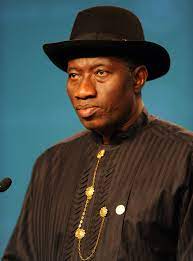AT the height of the epileptic electricity supply in Nigeria in 2013, the Federal Government, led then by President Goodluck Jonathan, opted for what many people saw as a revolution in the power sector. The entire system of providing electricity to Nigerian consumers was completely privatized.
In line with the Federal Government’s vision for the sector, individuals and corporate organisations were invited to take up the challenge of seamlessly process of making electricity available to citizens at costs to be determined by market forces but with little government intervention by way of subsidy. As a follow up to this, the sector was majorly divided into two – Electricity Generation Companies (Gencos) and Electricity Distribution Companies (Discos).
While the Electricity Generation Companies (GenCos) are to produce electrical energy in bulk, using hydro sources primarily, the Distribution Companies (DisCos) are charged with the supply of electricity to final consumers, monitoring customer complaints, handling standards, providing and reading meters with a view to collecting charges for services rendered among others.
Unfortunately, as Nigerians are lamenting the failure of DisCos to supply them with electricity, the electricity distributors on their part are sad that customers do not reciprocate their supply efforts with the payment for rendered services. This is amid further complains of many consumers that they are often billed arbitrarily.
The relationship between the DisCos and the final electricity consumers is not too different from what currently transpires between the GenCos and the DisCos on one hand and the Federal government and the generating companies on the other.
As the blame game continues, the Nigerians with need for electricity supply for businesses and comfort are left at the state of helplessness as they sometimes have to pay for what was not offered them in the first place.
A new dimension was recently added to the whole scenario when the Electricity Generating Companies under the umbrella of the Association of Power Generation Companies, expressed deep frustration over what they described as “inadequate payment for electricity generated and consumed on the national grid. They described it as a major threat to the viability of their power plants.
According to the companies, they are collectively owed a total of about N4trn. A breakdown the figure, shows that N2 trillion is owed to GenCos as legacy debt, while another N1.9 trillion is owed to them as part of the electricity subsidy for 2024, while DisCos are owed N450 billion for the 2024 electricity subsidy.
The GenCos warned that unless urgent and coordinated steps are taken to address the liquidity crunch, Nigeria’s electricity supply could collapse, with dire consequences for national security, economic growth, and public welfare.
Weighing in on the development, the special adviser to the Power Minister, BolajiTunji, said the government is aware of the development and is making concrete steps to resolve the lingering issue. He said that as part of the steps taken by the government, the Ministry of Finance would take charge of the payment very soon.
We view this as a step in the right direction, given the roles played by stable electricity supply in the economic growth and development of a nation such as Nigeria.
Noble as this step by the Minister of power is however, we are curious about how the ministry of finance will be able to raise the whopping sum of money for payment to GenCos within a short period as being promised. Our curiosity stems from the fact that the 2025 budget of the federal government provided for only N900bn for meeting financial obligations like this.
Instead of reneging on the government’s promise on account of paucity of funds, it is hoped that the minister and his team would explore other options, including settlement through external support mechanisms like the World Bank’s Power Sector Recovery Operation.
The nation cannot afford the negative effects of shutting her economy at this critical time due to government’s inability to meet her naira-based financial obligations to about 23 Nigeria-based companies involved in generating her needed electricity.


